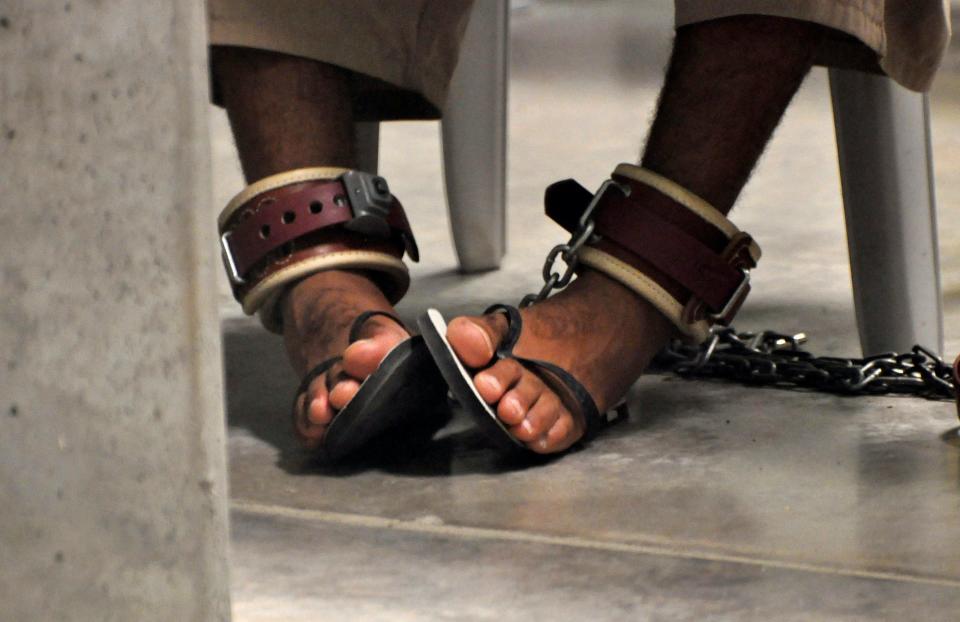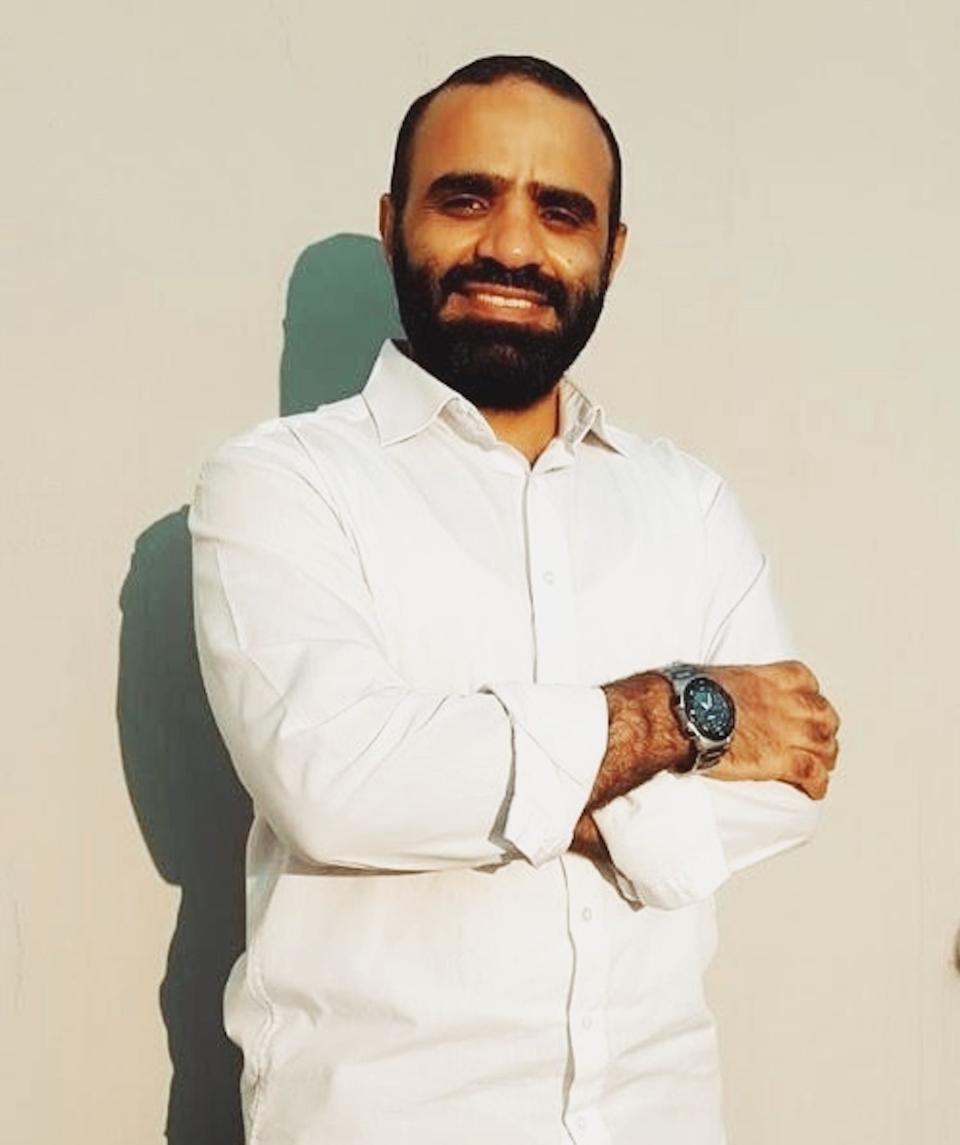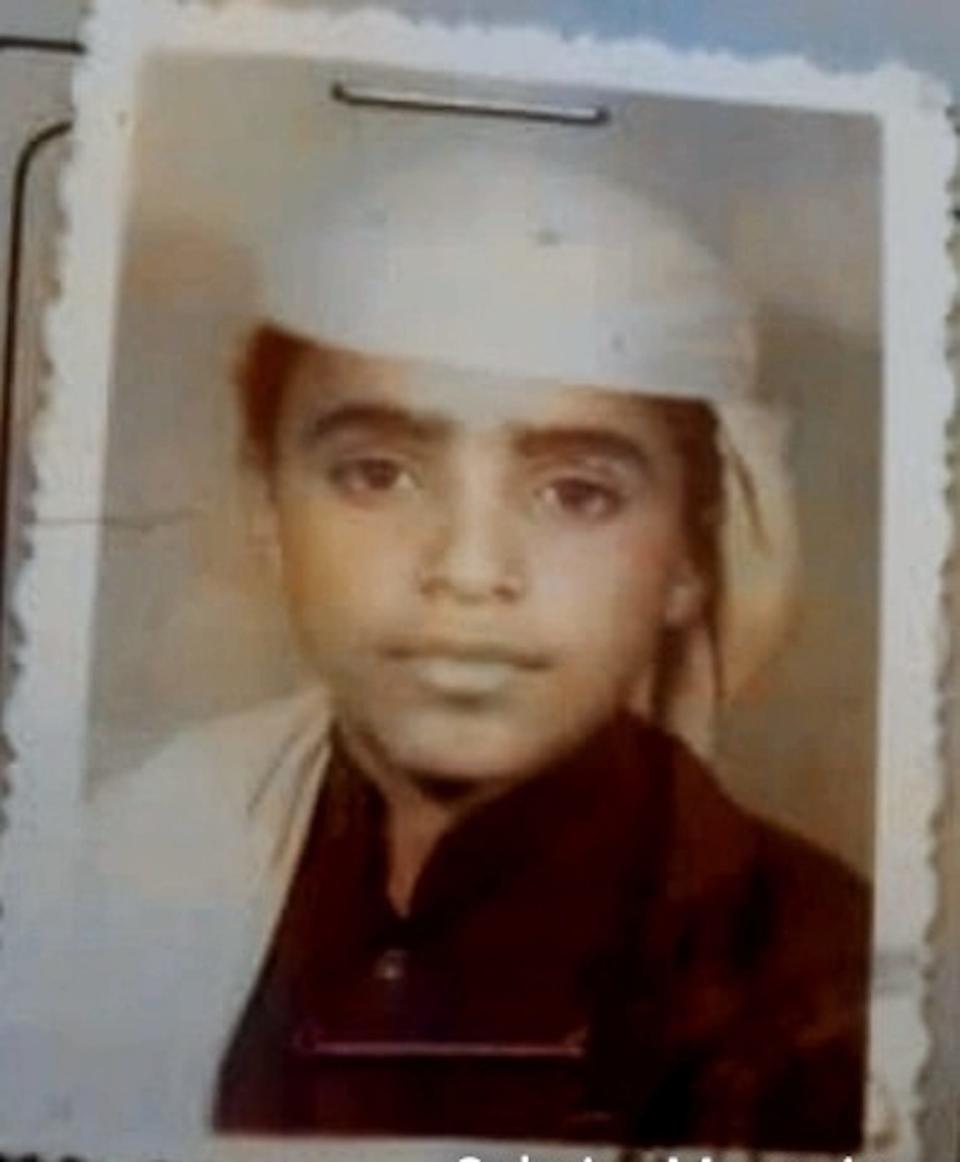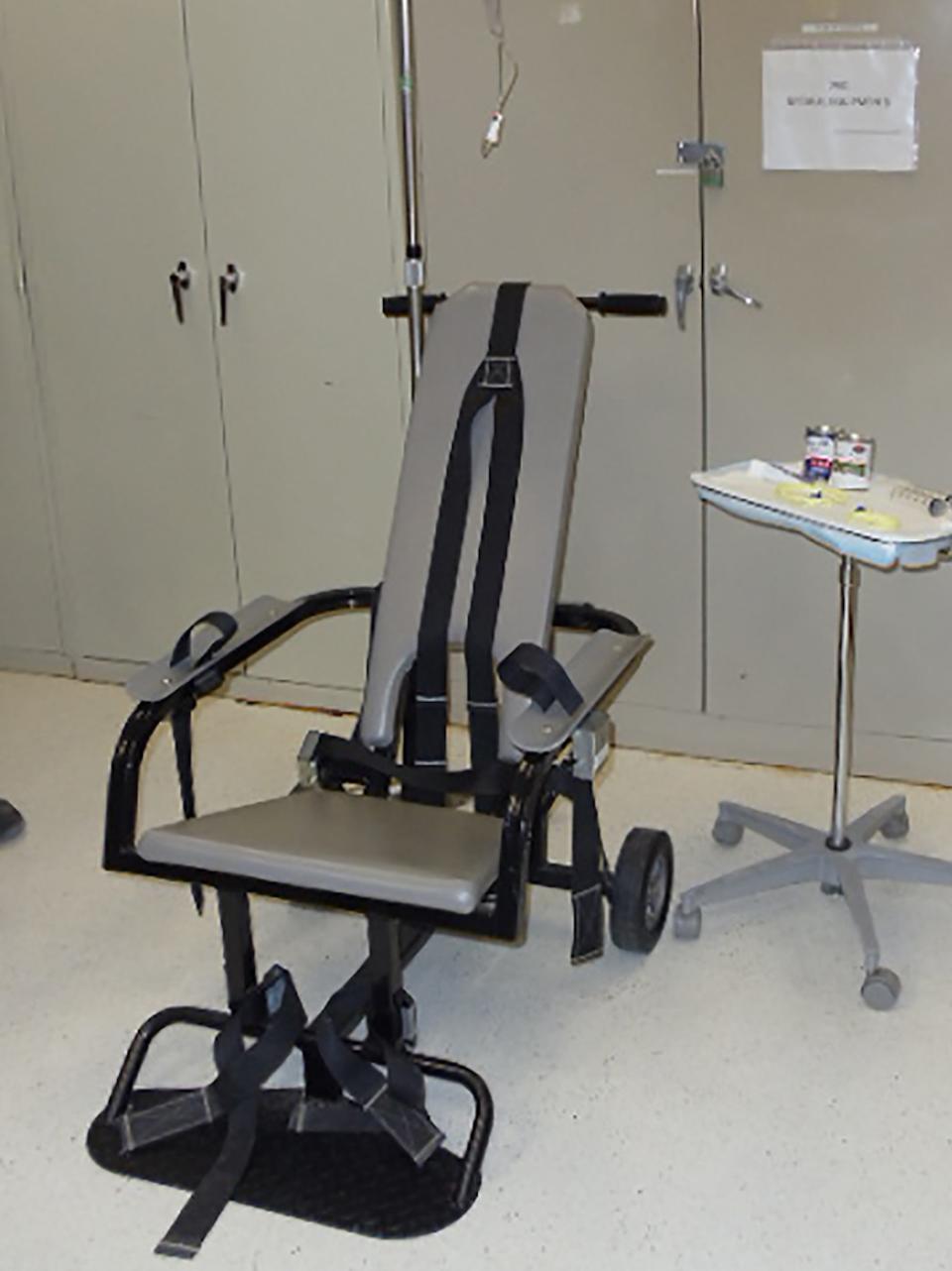'I'm living in Guantanamo 2.0': A Guantanamo Bay survivor says he can't get a job or make friends, and can't leave his city without permission

Mansoor Adayfi was held at Guantanamo Bay for 14 years. He was never charged with a crime.
He was released in 2016, but says his life now is still like being in prison.
He told Insider he can't make friends or get work, and is regularly interrogated.
Mansoor Adayfi spent 14 years in the Guantanamo Bay Detention Camp, where he says he was tortured, beaten, and force fed.
He was released in 2016. Like many detainees of the notorious facility, he was never actually charged with a crime, though the US accused him of being a recruiter for al Qaeda, which he denies.
But he said that, instead of feeling free, the stigma of having been in Guantanamo means he still feels like he's in prison.
"I live in Guantanamo 2.0," he told Insider.
'Welcome to our life ... It's hell'
Many Guantanamo detainees are sent to third countries after their release — not the US or their home countries.
Adayfi, who is from Yemen, was brought to Belgrade, Serbia, after his release. He still lives there.
Geographically, he's now far from the naval base in Cuba.
But he said the stigma of having been in Guantanamo, where he was known as Detainee 441, means he still can't build a life: "We are living with the stigma of Guantanamo. Guantanamo hasn't left us yet."
"Welcome to our life, " he said. "This, our life: It's hell."

He said he lives alone, in a one-room apartment, sleeping on the couch.
Earlier this year he released a book about his time in Guantanamo, and is now working on another one about life after release. He's also studying for a master's degree, partly supported through fundraisers and NGOs.
But he said getting a job, making friends, or forming relationships are impossible.
"I've lived here by myself for almost five years. Anyone I got in contact with — friends, or drink coffee with — they were harassed, interrogated, arrested and told to stay away."
Daphne Eviatar, Amnesty International USA's director of security with human rights, told Insider that many former Guantanamo detainees are "discriminated against" once they are released, and that some former detainees had been "arrested randomly" and "denied movement."

Adayfi said he'd been arrested and interrogated in Serbia multiple times.
An NPR journalist who interviewed him in Belgrade in 2017 said he was stopped by the police and questioned. The day after their first meeting, Adayfi said Serbian men broke into his apartment and pinned him to the floor, NPR reported.
The journalist also reported that during a separate video call, a group of men wearing black ski masks entered Adayfi's apartment, demanding to see his phone. Adayfi told Insider these were Serbian military members.
A US State Department spokesperson referred Insider's request for comment to Serbia, saying host countries are responsible for former detainees' security. "While the host government is encouraged to consult with us, the US government does not exercise any sort of custody over the treatment of resettled individuals," they said.
They said that the resettlement of former detainees is "carefully negotiated" between the US and the host country, "based on mutually reached security and humane treatment assurances," and told Insider they want to thank Serbia for taking those previously held at Guantanamo Bay.
Serbia's Ministry of Defence did not respond to Insider's request for comment.
An unsustainable life
Adayfi told Insider he has "no friends in the community, no family. Nobody. Your day is just same every day."
Another Guantanamo survivor, who was sent to Slovakia, told Newsweek in 2016 that he couldn't make any local friends or get a job, and that his family wasn't allowed to visit him.
Adayfi said he was evicted last year because of his past.
Eviatar, the Amnesty director, said she was aware of other Guantanamo survivors who'd lost their homes for the same reasons.

Adayfi said he has to ask the Serbian secret service for permission to leave the city three days before he wants to. Serbia's Ministry of Defence did not respond to Insider's request for comment about this.
He also said: "No one will hire you as a former Guantanamo detainee. I have tried to search for a job, but they [wouldn't hire me] as soon as they find out."
Eviatar said she could not comment specifically on Adayfi's case, but said of former detainees: "Many of them have been very restricted. They've not been allowed to leave their countries, they've not been given passports, they've been denied visas.
"They have a stigma of having been in Guantanamo, which makes it very difficult to get a job."
Adayfi is further limited because he is from Yemen, a country currently devastated by a civil war. He said he can't get a passport from Yemen as a result.
This is partly why he hasn't seen his family since before he was imprisoned, he said. They also live in rural Yemen with no power and have to travel to a nearby city to call him, he said.
Adayfi said he wants to live somewhere with his family, and where he can work.
"I cannot live forever like this. It's jail."
Life after Guantanamo
During his interview with Insider, Adayfi wore an orange cloth around his neck — something he says symbolizes how the prison is still a part of him, and an act he'll only stop when Guantanamo Bay is shut down.
The existence of Guantanamo itself is a legal gray area — critics have flagged human-rights violations and questioned the legality of punishing people who'd never been charged with a crime or given due process.

Adayfi said for the survivors, the punishment doesn't stop: "We feel we are being punished for being at Guantanamo, simply."
Other former detainees have detailed similar experiences. Lutfi bin Ali was brought to Kazakhstan, where he said he was isolated, made to feel unwelcome, and denied medical care. Others have died after being denied travel to other countries for medical care.
As president, Barack Obama said he wanted to close Guantanamo, but only succeeded in transferring some detainees out.
Donald Trump signed an executive order to keep it open, and halted transfers out of the prison.
Joe Biden says he wants to close it, but has not taken significant steps toward that goal.
There are now 39 detainees left in the prison.

Adayfi said that how people are treated after leaving Guantanamo depends on the human-rights conditions of the country they're sent to.
He said he often talks with other Guantanamo survivors, whom he calls his brothers, who are scattered across the world.
Some of them have been imprisoned and tortured by authorities since their release, while others are beaten, harassed, and detained by various country authorities every few weeks, Adayfi said.
He said many have not been allowed family visits or to get jobs.
"When I ask them, they say it's worse than Guantanamo," he said.
How he got there
Adayfi told Insider he was a goat herder and security guard in Yemen, and had been sent to Afghanistan to do research when he was kidnapped by Afghan warlords, and sold to the CIA at aged 18.
The US accused him of being an Egyptian recruiter for al Qaeda, which he denies.

He told The New York Times he falsely confessed to that identity in Afghanistan before being sent to Guantanamo, because he was being electrocuted and wanted it to stop.
Experts say this is similar to how many people ended up at Guantanamo, as the US offered bounties for suspected terrorists at the time.
According to an unclassified summary of his case, Adayfi told his 2006 court hearing: "I do pose a threat to the United States and its allies," said it was an "honor to be an enemy of the United States," and praised the 9/11 attacks.
In his book, Adayfi said he made the statement because "I felt that no matter what I said, they wouldn't release me or believe me."
"I wanted to teach them that they couldn't kill us and torture us and expect us to love them for it," he wrote.
His book, "Don't Forget Us Here," details much of this torture. He said that before being brought to Guantanamo, he was brought to a CIA black site, stripped naked, beaten and interrogated, before facing more of the same in the prison and struggling in solitary confinement.
He describes undergoing hunger strikes — and being force fed — to get better conditions for detainees, an issue he remains passionate about now.

His book also details unexpected positive moments.
He recalls marveling over some creatures that found their way in, including an iguana he called Princess. He said Princess was the "only friend I talked to for weeks."
"They tried to break us, to prove that we were animals. Instead we were proving we were human," he wrote.
He also expresses sympathy for guards, describing them as cogs in a machine designed to break them.
Adayfi wants to both move on from Guantanamo, and keep campaigning for prisoner rights.
His focus is now finishing his master's degree, but "after that, I must leave this place," he said. "I need to leave soon because I'm starting to lose my mind. I live inside my head."
Read the original article on Business Insider
